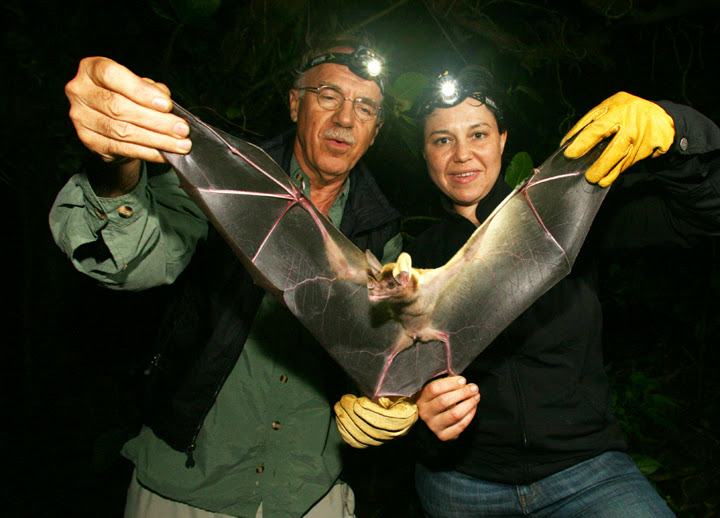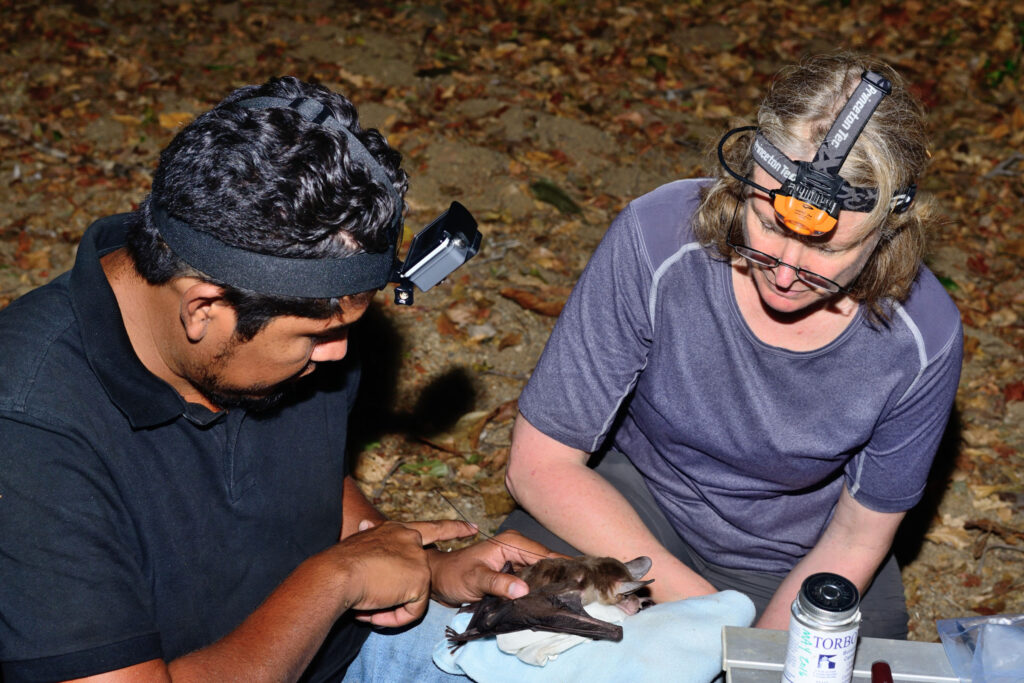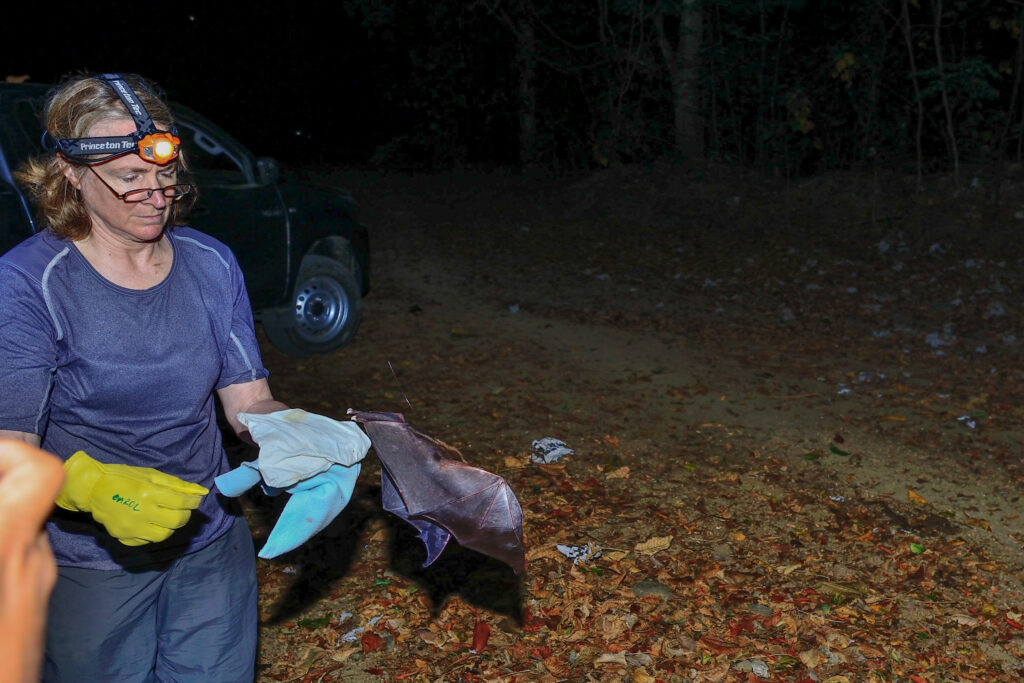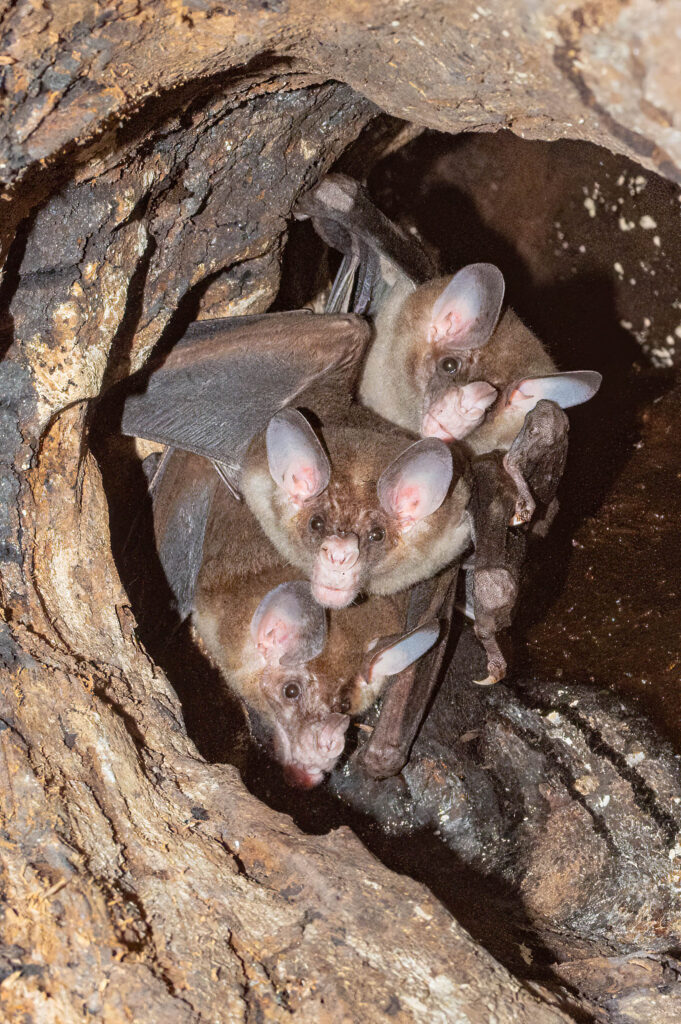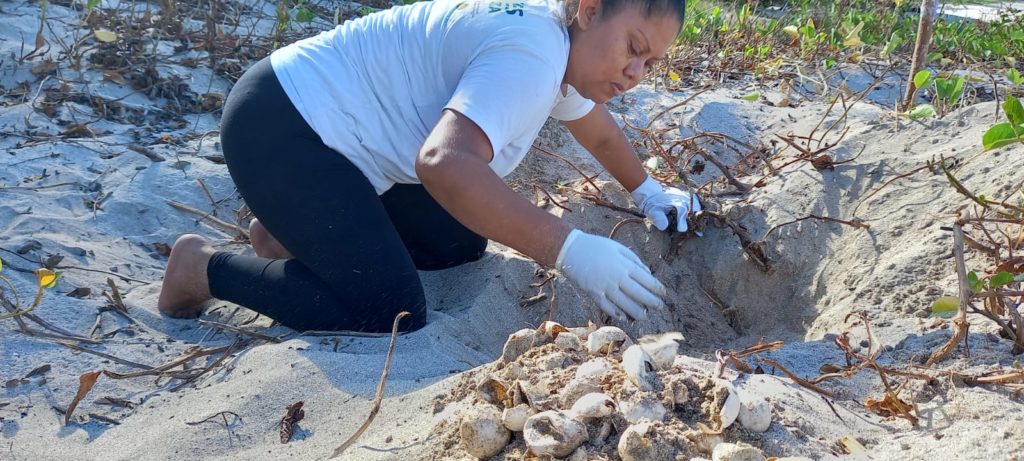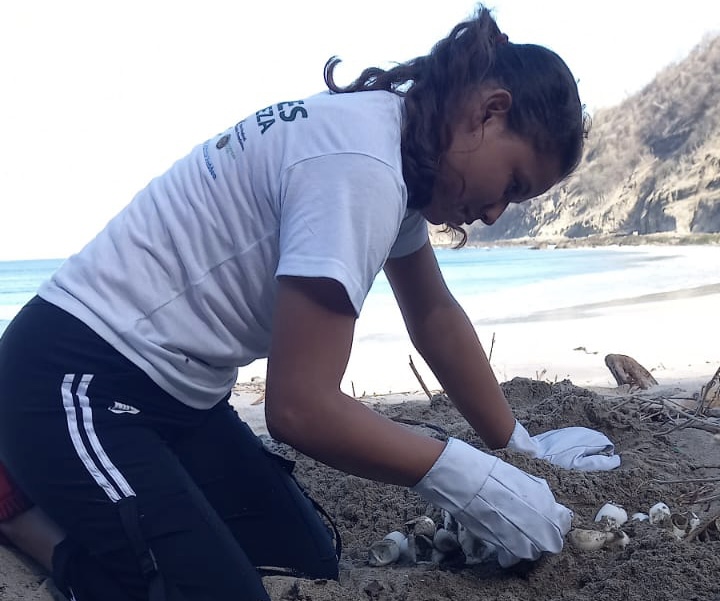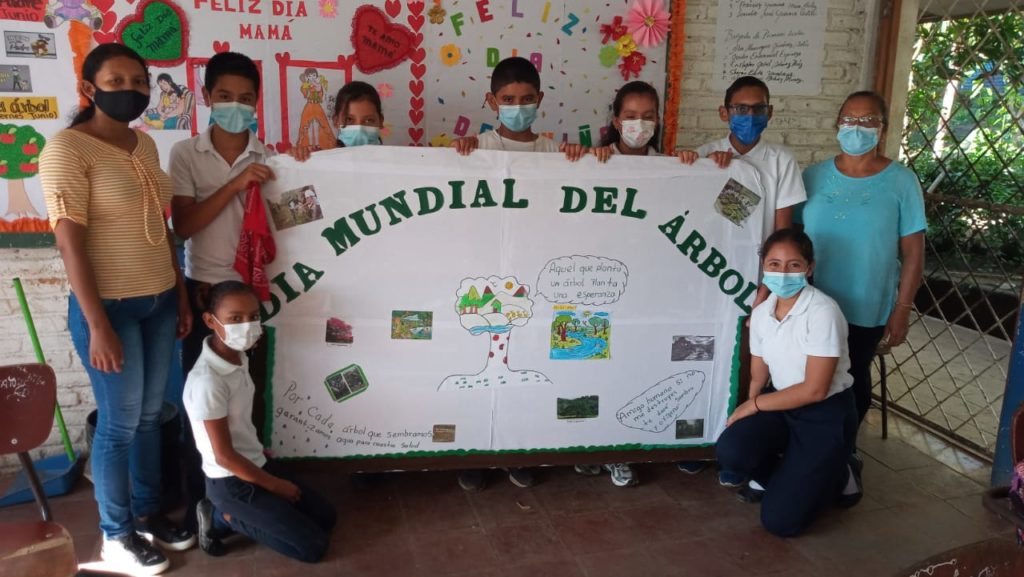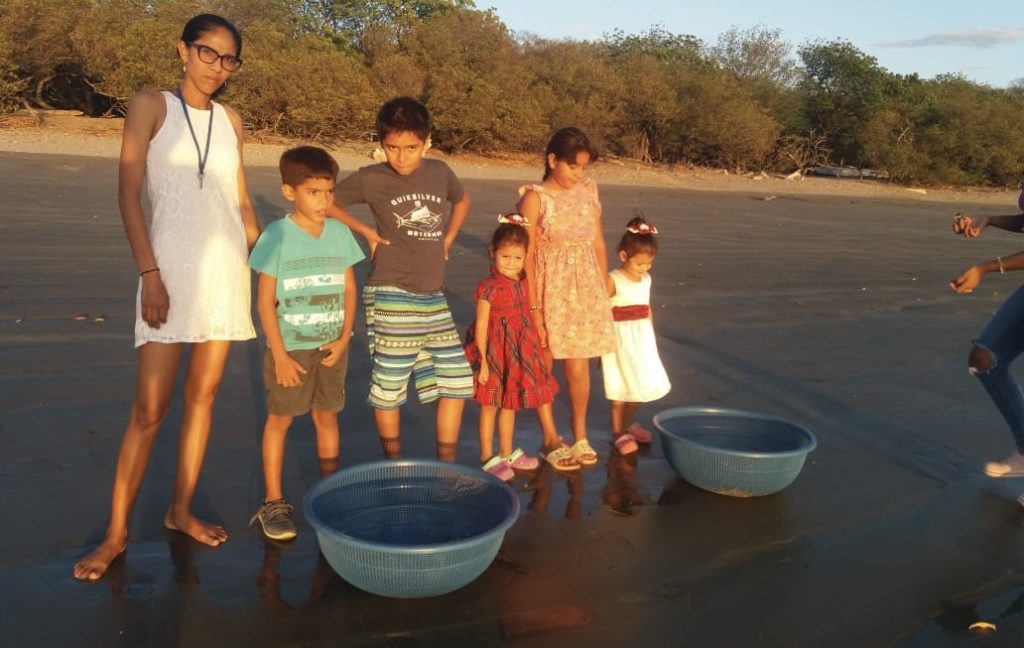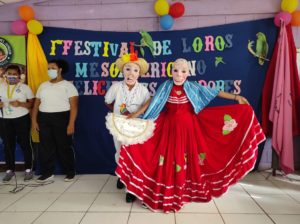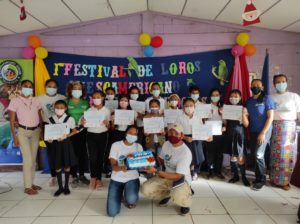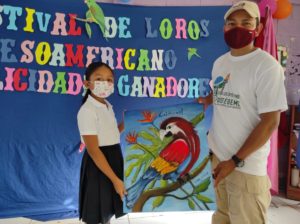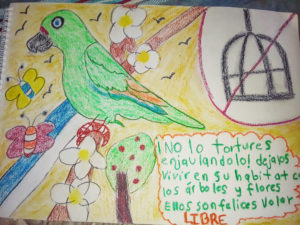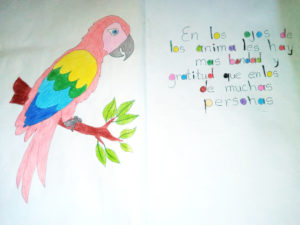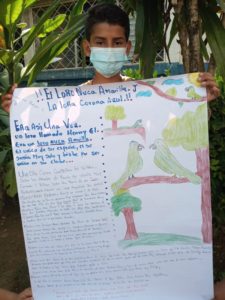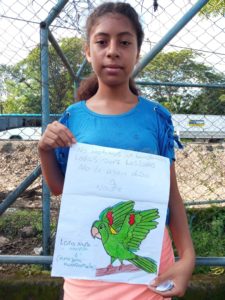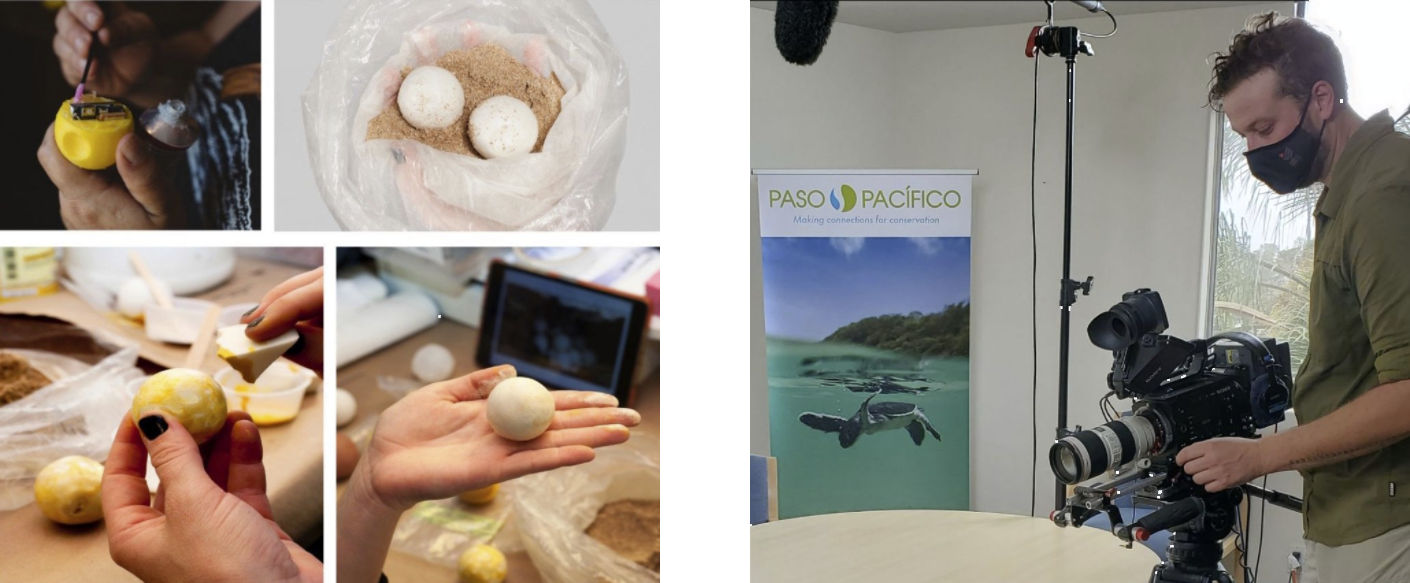Each holiday season, poinsettias adorn our homes, workplaces, and parties with their vibrant red and green leaves. They are the world’s most economically important potted plant, and our holidays are more joyful thanks to this gift from the forest.
Here are some ways that wild populations of undomesticated poinsettias play a crucial role in protecting both the species, the poinsettia industry, and our holiday season:
Genetic diversity: Wild poinsettias harbor a wider range of genes compared to their domesticated counterparts. This genetic diversity is essential for the species’ long-term survival and adaptability. It allows them to withstand environmental changes, such as diseases, pests, and climate shifts, that could potentially wipe out domesticated varieties with less genetic variation. Wild populations in Mexico and Guatemala are well known by scientists. By preserving additional wild populations (pictured above) in El Salvador, Paso Pacífico and our donors safeguard this valuable genetic reservoir that can be used to breed more resilient and disease-resistant poinsettias for the industry.
Disease resistance: Wild poinsettias have evolved natural defenses against diseases that can devastate cultivated poinsettias. Studying these resistance mechanisms can lead to the development of new pest and disease control methods for the industry, reducing reliance on harmful pesticides and ensuring a more sustainable production system.
Cross-breeding potential: Breeders can introduce valuable traits from wild poinsettias into cultivated varieties through cross-breeding. This can lead to the development of new poinsettia cultivars with improved characteristics, such as disease resistance, cold tolerance, or unique flower colors and shapes. This not only benefits the industry by offering a wider range of products to consumers but also helps diversify the gene pool of cultivated poinsettias, making them more resilient.
Conservation of pollinators: Wild poinsettias provide essential food and habitat for pollinators, such as bees and butterflies. These pollinators are crucial for the reproduction of both wild and cultivated poinsettias. By protecting wild poinsettia populations, we indirectly contribute to the conservation of these vital pollinators, which benefit not only the poinsettia industry but also the entire ecosystem.
Ecological balance: Wild poinsettias play a role in maintaining the ecological balance of their native habitats. They provide food and shelter for animals, help prevent soil erosion, and contribute to nutrient cycling. Protecting these wild populations ensures the health of the ecosystems they inhabit, which can have cascading benefits for the environment and even human well-being.
In conclusion, the most resplendent flowers of our holiday season depend on the dry tropical forest! Wild populations of undomesticated poinsettias act as a valuable insurance policy for both the species and the poinsettia industry. By protecting them, Paso Pacífico donors help safeguard the genetic diversity and natural resilience of poinsettias, promote sustainable production practices, and contribute to the health of the ecosystems they inhabit. This ensures the long-term survival of these beautiful plants so that generations to come can keep enjoying poinsettias at Christmastime.
